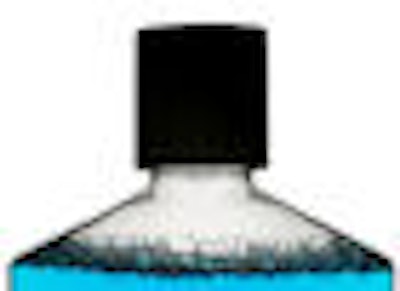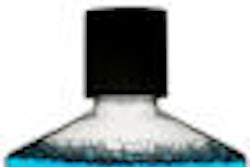
A Los Angeles court has dismissed a class-action lawsuit challenging Listerine's claim that its mouthwash is "as effective as floss" when used regularly. The suit, originally filed in 2005, alleged false advertising and fraudulent business practices, and was brought on behalf of anyone who purchased Listerine in California from June 2004 through January 2005.
The litigation stemmed from Listerine TV commercials that declared, "It's clinically proven. A quick, easy rinse with Listerine Antiseptic twice a day is actually as effective as floss." Flashy animated graphics showed streams of Listerine flowing around teeth, magically removing bits of food and plaque.
The "clinically proven" claims were based on two studies published in the Journal of the American Dental Association (May 2001, Vol. 132:5, pp. 670-675; April 2004, Vol. 135:4, pp. 496-504) -- both of which were funded by Pfizer, then the manufacturer of Listerine. In addition, one of the lead authors was a Pfizer researcher.
The 2004 study concluded that "twice daily use of Listerine is at least as good as daily flossing in reducing gingival inflammation in interproximal areas." However, in their conclusion, the authors noted that the findings "never were intended to suggest that rinsing with Listerine is a viable alternative to flossing."
In 2007, the ADA reaffirmed its position on the issue:
It is important to note that the ADA's daily oral hygiene recommendations have not changed -- people should still brush twice a day with an ADA-Accepted fluoride toothpaste; clean between their teeth daily with an ADA-Accepted floss or ADA-Accepted interdental cleaner; eat a balanced diet and limit between meal snacks; and visit their dentist regularly for professional cleanings and oral examinations.
One of many lawsuits
The California lawsuit was among nine similar suits filed against Pfizer, all of which were dismissed, that were filed in the wake of a 2005 decision by a federal court in New York that found that the ads posed a public health risk and could undermine the message of dental professionals. The judge in that ruling ordered the company to stop the ads, noting that "substantial evidence" suggests that no amount of mouthwash can replace daily flossing. Pfizer immediately discontinued the ads and removed the language from the Listerine labels.
The New York case was brought by Johnson & Johnson, which sued Pfizer over the ad campaign, saying it posed an unfair threat to its sales of dental floss. In an ironic twist to the case, Johnson & Johnson now owns Listerine, after buying the brand from Pfizer a few years ago.
In this latest case, the Court of Appeal for California's Second District ruled in late February that the class definition was "grossly overbroad," observing that "many, if not most, class members were not exposed to the 'as effective as floss' campaign and therefore did not purchase Listerine because of it."
The court also noted that "of 34 different Listerine mouthwash bottles, 19 never included any label that made any statement comparing Listerine mouthwash to floss."
A Los Angeles court certified the class action in 2005, but the California Supreme Court sent it back, instructing the court to reconsider it in light of a landmark class-action tobacco case. In that case, the class of smokers was certified since cigarettes were marketed as part of a "decades-long campaign of deceptive and misleading statements" about the dangers of tobacco.
In contrast, the court said, the Listerine suit only applied to a six-month period and most class members may have purchased the mouthwash not because they saw the ads, "but rather, because they were brand-loyal customers," according to the ruling.
In this latest development, the California Court of Appeal found that even lead plaintiff Steve Galfano was unqualified to represent the class, noting that he admitted that he didn't buy Listerine because of the ads but because the bottle's red label said it was "as effective as floss." His "limited experience" with a particular label was not representative of other consumers' experiences, according to the court, which noted that some of the ads and labels "expressly advised consumers to continue flossing."
Neither Pfizer nor the attorney for Galfano responded to calls for comment.
Copyright © 2010 DrBicuspid.com



















